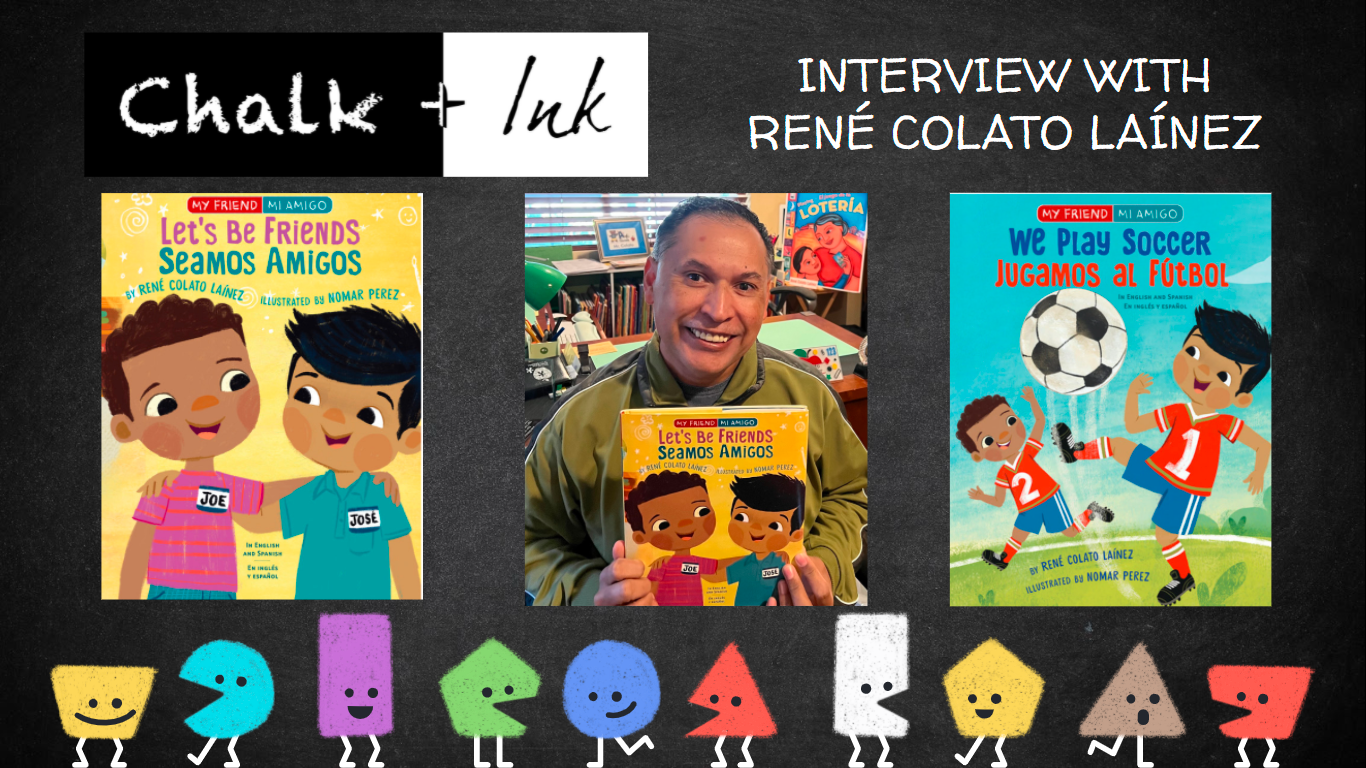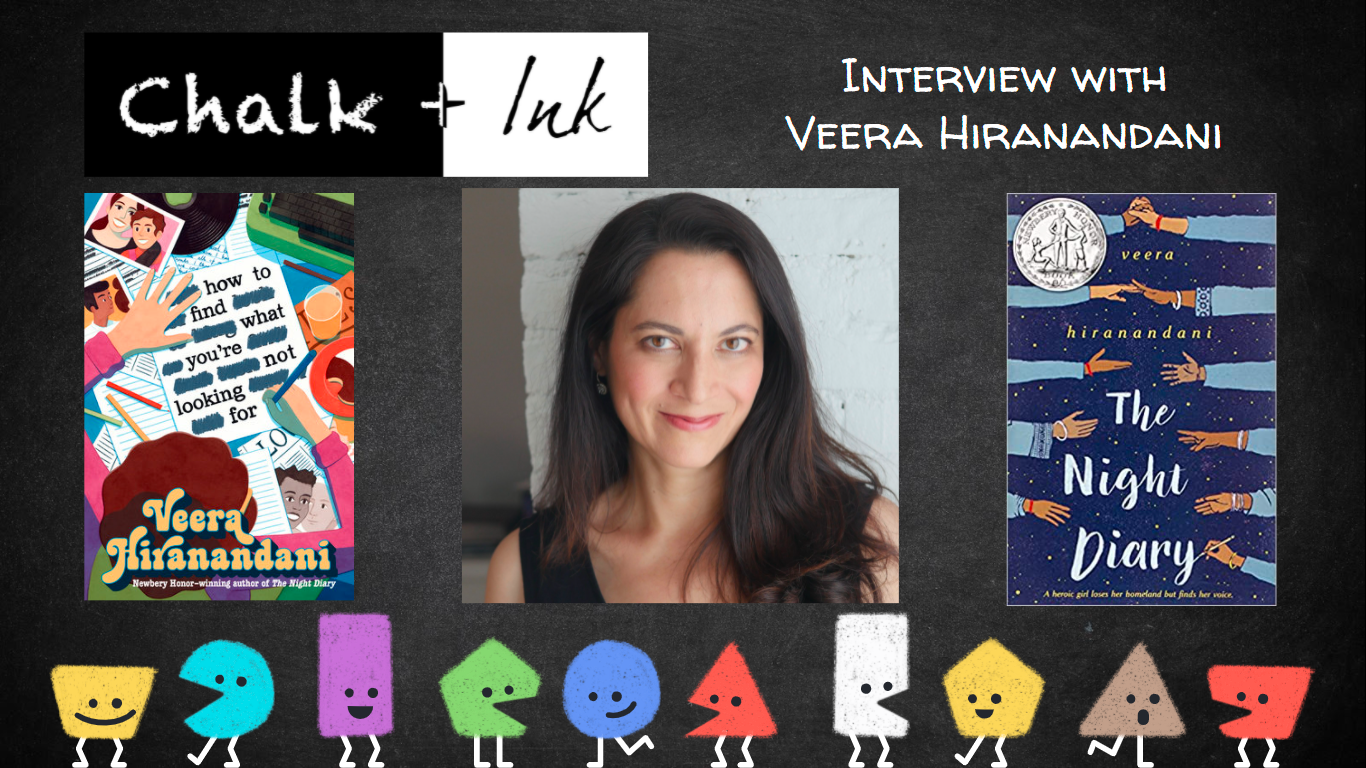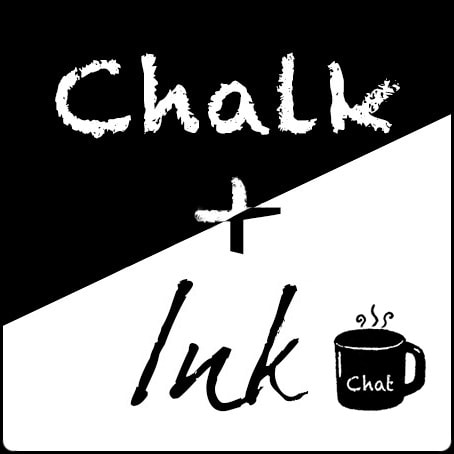Interview with Salvadoran Author and Early Childhood Educator, Rene Colato LainezAs I go about my day, I often forget about the fact that I have led a tremendously privileged life. My house never burnt down, I was never separated from my parents, and I didn’t walk across three borders to live in the United States. Today’s guest, René Colato Laínez, has experienced all of those traumas, yet one would never know it from listening to his laughter and this joy-filled episode. We talk about the magic of cardboard castles, how books are portals into difficult discussions, and the creative power of libraries. As teachers, if we want our students to love writing, they have to know we love writing. René has celebrated writing throughout his teaching career. When he began teaching Spanish bilingual kindergarten, he needed bilingual books. So, he wrote some and used photos to illustrate his stories. In order to entice students to his writing center, he asked a video store (remember those) to give him their cardboard castle they used to display video tapes. He took the castle back to his classroom and tucked two tables inside of it. Kids argued over whose turn it was to sit inside the castle and write. 29 years later since his first day, René is still teaching. Now, his students can choose to read one of his eighteen published bilingual titles. René writes books that are portals into difficult discussions. If a parent gets deported, the parent who remains in the United States may choose to read From North to South/Del norte al sur to begin this difficult discussion. If a child walked across borders to enter the United States, they can find a mirror when reading My Shoes and I/Mis zapatos y yo. What about if a child doesn't understand why their parent has a green card that states their a resident alien? Does that mean their parent is an extraterrestrial? Mamά the Alien/Mamά la extraterrestre will clear up the confusion and make readers laugh out loud. Are you stuck in a writing rut? During the summers, René spends three hours a day writing at the library. The silence nourishes him and being surrounded by thousands of creative titles inspires him. Plus, there's no pressure to do chores! According to René, every early elementary classroom should have the following titles: The Empanadas that Abuela Made/Las empanadas que hacía la abuela by Diane Gonzales Bertrand Estrellita Says Good-Bye to her Island/Estrellita se despide de su isla by Samuel Caraballo and Diane Gonzales Bertrand Spanish bilingual titles are particularly important in René's classroom because his students' parents like to borrow books published in both languages. Going Home, Coming Home (English and Vietnamese Edition) by Truong Tran Waiting for Mama by Lee Tae-Jun This title pairs well with Waiting for Papἀ/Esperando a Papἀ by René. René's students also love this perennial classics such as The Very Hungry Caterpillar by Eric Carle and Mo Willem's titles such as Don't Let the Pigeon Drive the Bus! and the Elephant and Piggy series. Happy listening!
0 Comments
Interview With Creative Writing Instructor and Newbery Honor Winner, Veera HiranandaniBefore I get into today’s amazing interview with author and teacher, Veera Hiranandani, I want to give a shout out to all the Chalk + Ink guests who received 2022 ALA awards. Let’s start with Veera! Her book How to Find What You’re Not Looking For won the Sydney Taylor Book Award and the Jane Addams Peace Award. Congratulations are also in order for Alicia D. Williams. Her picture book Shirley Chisholm Dared: The Story of the First Black Woman in Congress won the Jane Addams Peace Award for Younger Children. I also want to congratulate Carole Boston Weatherford. Her book, Unspeakable, illustrated by Floyd Cooper, won a Caldecott Honor, a Sibert Honor, a Jane Addams Peace Award Honor, and the Coretta Scott King Book Author Award and the Coretta Scott King Illustrator Award. Finally, I want to shower congratulations on Melissa Stewart and Sarah Brannen, the creator of the Chalk + Ink logo, for winning a Sibert Honor for their book Summertime Sleepers. Congratulations everyone! Thank you all for gifting us such wonderful books. In this episode, the reflective and serene Veera Hiranadani, talks about the power of 15 minutes, the importance of respecting one another during the critique process, and how stories help us explore possible ways we can change. The concept of 15 minutes a day changed my life twenty years ago, before I started writing on a daily basis. I had always struggled with cleaning. I thought since I didn't have enough time to do a "perfect" job, I wouldn't even start. You can imagine the cumulating disaster mounting in my house. Then, my friend told me about Fly Lady and the idea that if I spent 15 minutes a day cleaning it would make a huge difference. It did. Now, I live my life in 15 minute chunks. My sons tease me about it, but the truth is it's a highly effective strategy for task completion. So, I was pretty thrilled when Veera explained in depth how it's possible to write a novel in 15 minutes a day. The truth is we all have 15 minutes a day. So, there's no longer any excuse not to write. Veera also talks about how the main purpose of a critique group is to keep one another writing which is why it's so important to be positive and respectful during the critique process. This is an idea I've been exploring ever since last year when Sheri Dillard shared that her breakthrough moment in writing occurred when she focused on what she was doing well, instead of focusing on improving what she wasn't doing well. When Veera sees an aspect of a student's writing that could be improved, she says, "I wonder what would happen if...?" The world is full of limitless possibilities. What happens when we focus on what's possible, instead of what's impossible? Jeff Anderson, Whitney LaRocca and I also discussed this idea last episode as well if you want to continue exploring the power of the positive. Finally, Veera eloquently discusses how we use stories to see possible avenues of change and how evolution happens for the characters in a book because we, as readers, are looking for a roadmap to help us evolve into the best human beings we can be. During the episode, we talk about three craft books. 1) Flow by Mihaly Csikszentmihalyi 2) Big Magic by Elizabeth Gilbert 3) Your First Page by Peter Selgin Veera thinks every upper elementary and middle grade classroom should have the following two books: Prairie Lotus by Linda Sue Park. Linda wrote the book as a multicultural response to Laura Ingalls Wilder's Little House on the Prairie series. Veera, who is biracial, connected with the biracial main character in the book. Letters from Cuba by Ruth Behar. This book pairs well with Veera's The Night Diary. Letters from Cuba is also epistolary and it takes place less than ten years before The Night Diary. Veera also highly recommends Ruth's first novel, Lucky Broken Girl, which takes place in the 1960's like Veera's How to Find What You're Not Looking For. I'm excited to add both of Ruth's titles to my historical fiction collection. If you would like to enter to win one of Veera's books, please leave a comment below and fill out this form. Happy listening! |
Chalk + Ink ChatsWant to hang out with teachers who write and writers who teach? Fill this form to join our Archives
October 2023
Categories |


